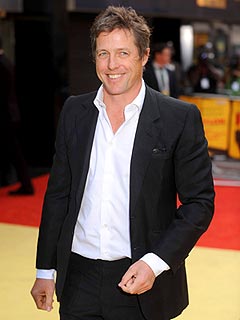MOSCOW (Reuters) - The Group of 20 nations declared on Saturday there would be no currency war and deferred plans to set new debt-cutting targets, underlining broad concern about the fragile state of the world economy.
Japan's expansive policies, which have driven down the yen, escaped direct criticism in a statement thrashed out in Moscow by policymakers from the G20, which spans developed and emerging markets and accounts for 90 percent of the world economy.
Analysts said the yen, which has dropped 20 percent as a result of aggressive monetary and fiscal policies to reflate the Japanese economy, may now continue to fall.
"The market will take the G20 statement as an approval for what it has been doing -- selling of the yen," said Neil Mellor, currency strategist at Bank of New York Mellon in London. "No censure of Japan means they will be off to the money printing presses."
After late-night talks, finance ministers and central bankers agreed on wording closer than expected to a joint statement issued last Tuesday by the Group of Seven rich nations backing market-determined exchange rates.
A draft communiqué on Friday had steered clear of the G7's call for economic policy not to be targeted at exchange rates. But the final version included a G20 commitment to refrain from competitive devaluations and stated monetary policy would be directed only at price stability and growth.
"The mood quite clearly early on was that we needed desperately to avoid protectionist measures ... that mood permeated quite quickly," Canadian Finance Minister Jim Flaherty told reporters, adding that the wording of the G20 statement had been hardened up by the ministers.
As a result, it reflected a substantial, but not complete, endorsement of Tuesday's proclamation by the G7 nations - the United States, Japan, Britain, Canada, France, Germany and Italy.
As with the G7 intervention, Tokyo said it gave it a green light to pursue its policies unchecked.
"I have explained that (Prime Minister Shinzo) Abe's administration is doing its utmost to escape from deflation and we have gained a certain understanding," Finance Minister Taro Aso told reporters.
"We're confident that if Japan revives its own economy that would certainly affect the world economy as well. We gained understanding on this point."
Flaherty admitted it would be difficult to gauge if domestic policies were aimed at weakening currencies or not.
NO FISCAL TARGETS
The G20 also made a commitment to a credible medium-term fiscal strategy, but stopped short of setting specific goals as most delegations felt any economic recovery was too fragile.
The communiqué said risks to the world economy had receded but growth remained too weak and unemployment too high.
"A sustained effort is required to continue building a stronger economic and monetary union in the euro area and to resolve uncertainties related to the fiscal situation in the United States and Japan, as well as to boost domestic sources of growth in surplus economies," it said.
A debt-cutting pact struck in Toronto in 2010 will expire this year if leaders fail to agree to extend it at a G20 summit of leaders in St Petersburg in September.
The United States says it is on track to meet its Toronto pledge but argues that the pace of future fiscal consolidation must not snuff out demand. Germany and others are pressing for another round of binding debt targets.
"We had a broad consensus in the G20 that we will stick to the commitment to fulfill the Toronto goals," German Finance Minister Wolfgang Schaeuble said. "We do not have any interest in U.S.-bashing ... In St. Petersburg follow-up-goals will be decided."
The G20 put together a huge financial backstop to halt a market meltdown in 2009 but has failed to reach those heights since. At successive meetings, Germany has pressed the United States and others to do more to tackle their debts. Washington in turn has urged Berlin to do more to increase demand.
Backing in the communiqué for the use of domestic monetary policy to support economic recovery reflected the U.S. Federal Reserve's commitment to monetary stimulus through quantitative easing, or QE, to promote recovery and jobs.
QE entails large-scale bond buying -- $85 billion a month in the Fed's case -- that helps economic growth but has also unleashed destabilising capital flows into emerging markets.
A commitment to minimize such "negative spillovers" was an offsetting point in the text that China, fearful of asset bubbles and lost export competitiveness, highlighted.
"Major developed nations (should) pay attention to their monetary policy spillover," Vice Finance Minister Zhu Guangyao was quoted by state news agency Xinhua as saying in Moscow.
Russia, this year's chair of the G20, admitted the group had failed to reach agreement on medium-term budget deficit levels and expressed concern about ultra-loose policies that it and other emerging economies say could store up trouble for later.
On currencies, the G20 text reiterated its commitment last November, "to move more rapidly toward mores market-determined exchange rate systems and exchange rate flexibility to reflect underlying fundamentals, and avoid persistent exchange rate misalignments".
It said disorderly exchange rate movements and excess volatility in financial flows could harm economic and financial stability.
(Additional reporting by Gernot Heller, Lesley Wroughton, Maya Dyakina, Tetsushi Kajimoto, Jan Strupczewski, Lidia Kelly, Katya Golubkova, Jason Bush, Anirban Nag and Michael Martina. Writing by Douglas Busvine. Editing by Timothy Heritage/Mike Peacock)










